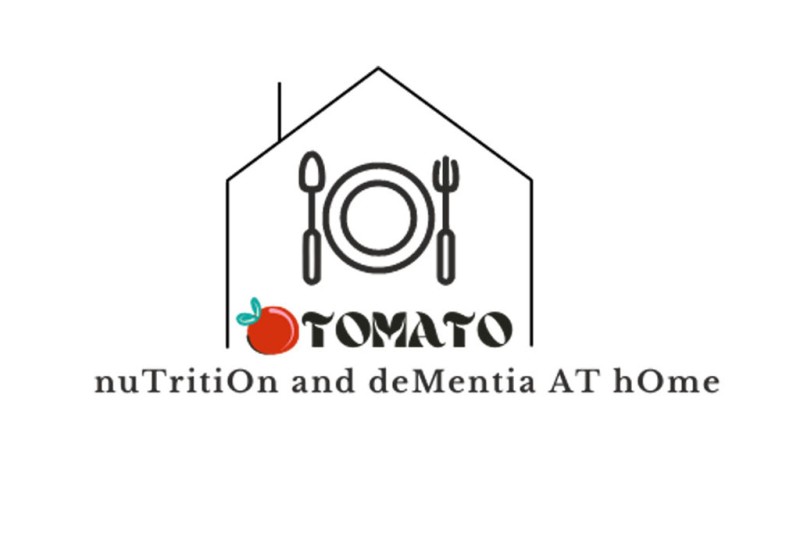Project TOMATO (nuTritiOn and deMentia AT hOme) aims to work together with home care staff, people with dementia and family carers to provide nutritional care for people living with dementia at home.
The collaborative project is about adapting an intervention to support people living with dementia at home with eating and drinking.
Responding to an increasing need
The number of people living with dementia is increasing at an unprecedented rate. In the UK, dementia affects over 850,000 people. Most people with dementia live at home and are supported mainly by family or friends.
As dementia progresses, ensuring people eat and drink well presents numerous challenges for all involved. Poor nutrition is a significant factor causing ill health. Many with dementia are at risk of being undernourished due to reduced appetite, eating and swallowing problems. Being undernourished leads to poorer health and quality of life for people with dementia (and their carers), more GP appointments and increased hospital admissions.
The significance of undertaking this study was further reinforced after initial discussions with people living with dementia, family carers, health care professionals and home care workers. They emphasised that eating and drinking are crucial issues of concern for them.
Home care workers are well-positioned to play a critical role in intervening early in the nutritional care for people with dementia at home. A more proactive and wide-ranging approach to nutritional assessment and management is needed targeting interventions at home care workers and family carer groups, with input from appropriate health care professionals.
How will the study be conducted?
Project TOMATO will help develop an intervention for people with dementia living at home, which is crucial to achieving improved nutritional care and health outcomes while reducing carer burdens.
The study take places in two phases over 18 months, involving home care organisations from across Greater London, West Yorkshire, North West England and the South West:
- Phase 1 involves adapting an existing nutrition intervention by getting feedback from people with dementia, family carers, home care staff and nutrition experts.
- Phase 2 will include training home care workers to deliver the adapted intervention to people with dementia and family carers in receipt of care at home.
Working in partnership
This project is led by Bournemouth University, working in partnership with other universities and health care provider organisations:
Kelsey Walmsley
Registered manager, Westmorland Homecare
We are passionate about keeping people at home safely, good nutrition and hydration are key part of this and we look forward to seeing the positive impacts that we are sure this research will have for individuals suffering with dementia.
Patient and Public Involvement (PPI) and Project Steering Group
The TOMATO Project Steering Group encompasses a multidisciplinary expert team from practice including dietitians and representatives from the care sector, Care Quality Commission and Skills for Care.
A Public Patient Involvement (PPI) group consisting of family carers, people with dementia and home care workers will continue to provide input to help influence and shape the research and development of the intervention. We will hold meetings throughout key stages of the study.
“Good dementia research is inclusive dementia research. Dementia research should have an input from those with lived experience.
In this case, there is a PPI group of family carers along with their cared for relatives as well as home care professional carers. They also represent the cultural diversity of our community – so essential for a nutritional based project. This ensures that all the outcomes and recommendations are also supported by those that will benefit from them.”
John Major, former carer and TOMATO PPI lead
Both groups are meeting virtually and have provided valuable feedback at key stages since the study began, including the development of the adapted new resources. Going forward with the second phase, the research team will continue to engage with both groups to inform future research and implementation of the resources.
Sharing our findings
We will work with our Project Steering Group and PPI Group to identify specific outlets and the best ways to share our findings. These would include website and patient and carer websites, academic journals, blogs and social media posts and conference presentations.
Making a difference
Project TOMATO will help develop an intervention for people with dementia living at home, which is crucial to achieving improved nutritional care and health outcomes while reducing carer burdens.
In addition, the project will help support the development of the home care workforce by extending existing skills. The project will support the acquisition of new knowledge, approaches and attitudes via training. Consequently, this approach will strengthen the commitment and recognition of the critical role of nutritional care for people with dementia.
As a feasibility study, findings from TOMATO could inform the design of a larger trial to measure the effectiveness of the adapted and tested intervention.
Training photos
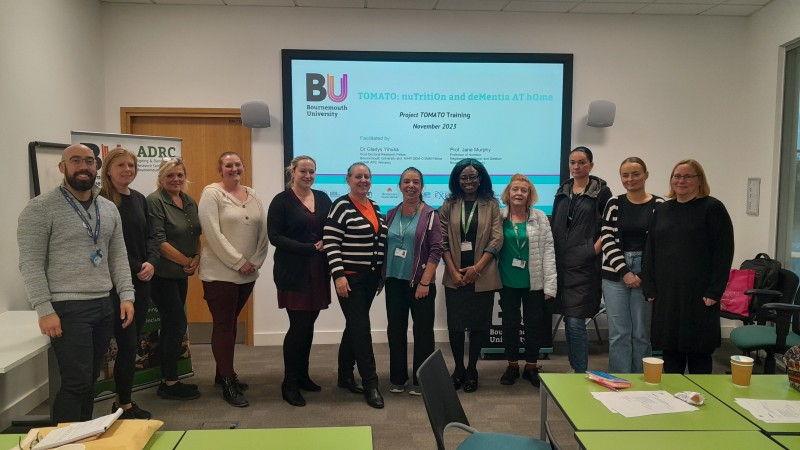
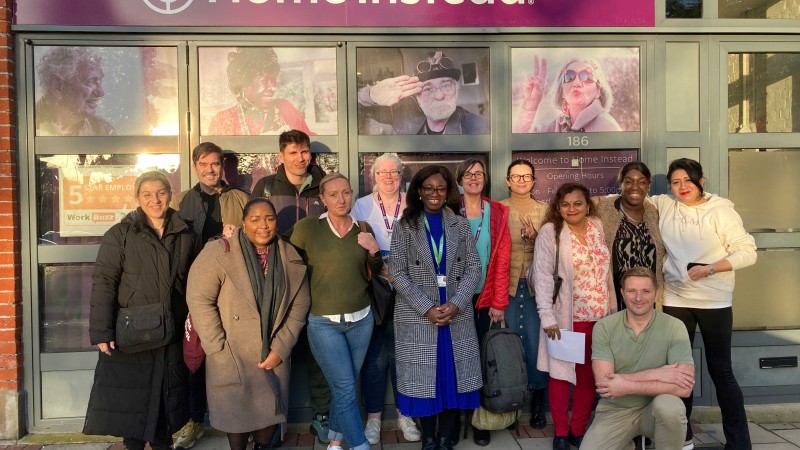
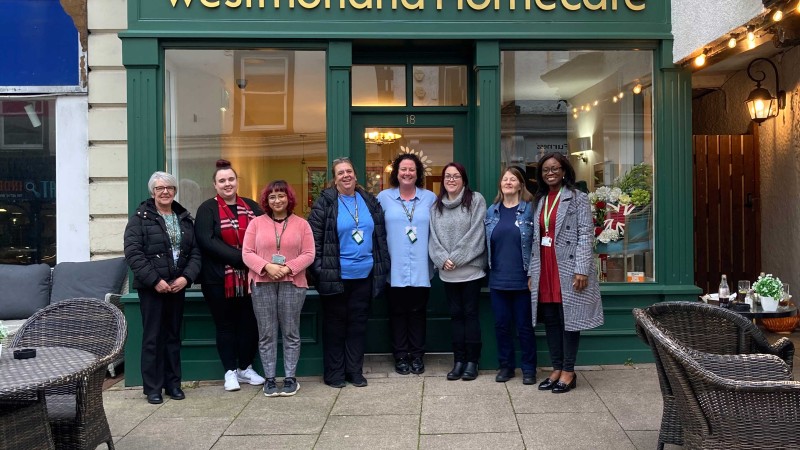
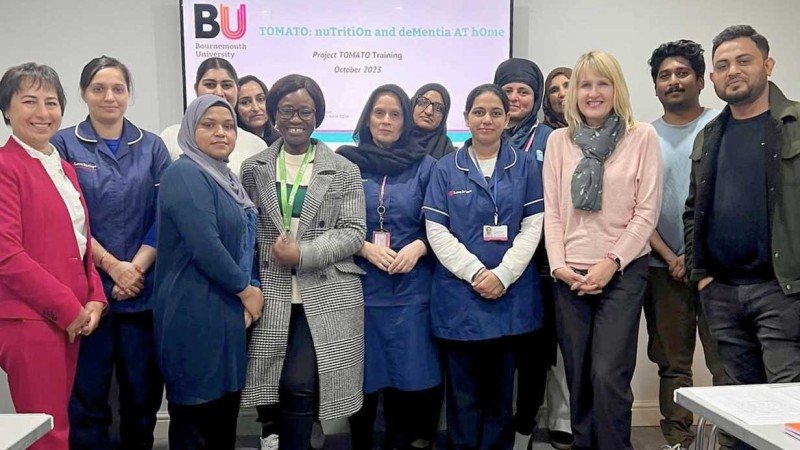


Aqila Choudhry MBE
Managing Director, Love In Care
"We quickly recognised the immediate & long-term improvements to quality of service through involvement with TOMATO. In return we are uniquely placed to involve customers from different ethnic backgrounds and varied nutritional support arrangements
